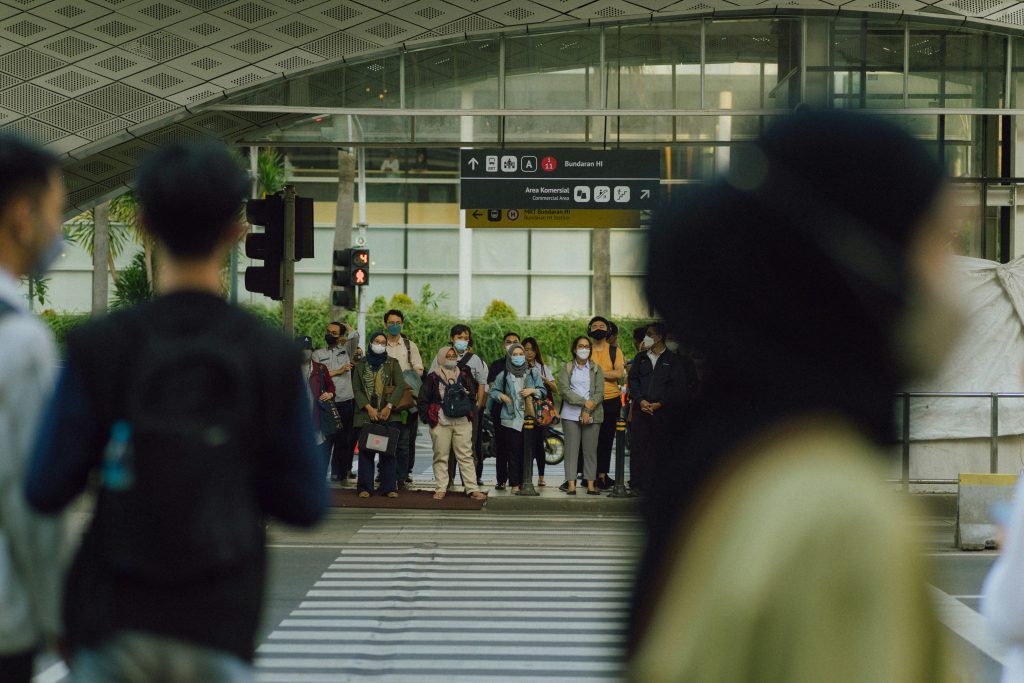In the recent Group of 20 Summit in Osaka, Japan, Japanese Finance Minister Taro Aso stated that an aging population was a global risk. Aso was quoted as saying: “If the issue of aging starts to show its impact before you become wealthy, you really won’t be able to take effective measures against it.”
The warning deeply resonates here, as Indonesia is on the path to having an aging population. Yet another aspect of aging that is often overlooked from public discussion is the gender dimension. The gender composition of elderly people in Indonesia shows that there are more women than men facing old age.
Using gender perspective means we must consider how aging affects both sexes differently. For instance, men and women both encounter health risks when they get older, but their physiological and life experience bring different impacts. The World Health Organization says that while women have a longer life expectancy rate, their healthy period is not quite equal to men’s, meaning women are more likely to outlive men but they will live in less healthy conditions during old age.
Furthermore, each gender will face different social risks because although they come from the same socioeconomic group, being born in a patriarchal culture means women face different challenges and receive fewer opportunities over the course of their lives.
In Indonesia, there are much fewer productive-age women in the labor force than men. Recent statistics (Sakernas 2018) show that Indonesia’s labor force is made up of 80 million men and 50 million women. This excludes the 35 million women in their productive age who are not considered to be part of the workforce because they are counted as “housewives”.
Adding to their burden, women’s participation in the labor force must sometimes be interrupted so they can fulfill their reproductive and caregiver role. Further challenged by their lower level of education, women outside the labor force are of a group that is the least prepared for old age because they have no wage and pension funds, after spending most of their lives doing unpaid domestic work. Europe has a social policy that is directed toward preparing women to have greater participation in the labor force and encouraging governments to provide specific pension schemes for women outside the labor force.
What about Indonesia? Social protection programs from the central government for elderly people are still limited to the assistance for the elderly program (ASLUT), conditional cash transfer (PKH) and subsidies (PBI) for the elderly under the National Health Insurance (JKN) program.
Therefore, we must work hard to prepare better conditions for elderly people in our future aging society. Three steps are recommended for improving the living conditions of elderly people and to protect them from socioeconomic risks, especially for women, who have less opportunity to prepare themselves without state intervention.
First, we must improve the quality of life of young girls so that they can achieve a high level of education and decent work, and hence accumulate wealth for their old-age. To do so, the government should work with local communities and civil society to eradicate cultural barriers such as child marriage.
Statistics Indonesia (BPS) data shows that one in four married women aged 20-24 were married before they were 18 years of age and that women in the poorest category have the highest percentage of underage marriages, nearly three times more than wealthier groups. If this barrier is not removed, women will be the largest suffering group in this vicious cycle of poverty, protracting intergenerational poverty.
Second, improving care services for senior citizens and children, which will benefit men and women alike but has double advantages for women because it would reduce care work for women in families. Cultural norms in Indonesia often assign care work to women, and women take care of their elderly parents, in-laws or grandchildren more than men do. These jobs are mainly unpaid and offset women’s opportunity to participate in the labor force, hence making them financially vulnerable. The government needs to step in to ensure that services for children and the elderly are more affordable for families at all socioeconomic levels. Advanced economies have long been providing childcare and old-age facilities rebates for their citizens; Indonesia can learn from them.
The third and most immediate need is to increase social assistance payments to elderly poor people to prevent them from falling deeper into poverty. The current amount is almost twice lower than the individual poverty line, hence the government needs to double it. In doing so, the government must also note that women are usually left out of the labor force and more likely to not have a formal pension when they are aging. Therefore, the amount must be adjusted for women.
Good examples do exist. For instance, Nepal demonstrates that a country’s lack of wealth is no impediment. As one of the poorest countries in Asia, it invests around 1.3 percent of its gross domestic product (GDP) in its universal grant for the elderly, covering everyone over 65 and all single women over 60. In Indonesia, the total social assistance program covering all age groups reaches only 0.32 percent of the total GDP. At the local level, Badung regency in Bali drastically increased its budget allocation for elderly people’s income assistance in 2019, from Rp 54 billion (US$3.76 million) to Rp 200 billion, nearly four times as much as in the previous year.
In the G20 Leaders’ Declaration, leaders urged country members to respond to their aging population with taxation, social security and labor policies. Our new administration must respond and incorporate a gender perspective into its aging population policy, too. As voters in the recent election, we would like to remind the President of his promise to focus on human development in his second tenure, a promise we would like to hold dear.
Herni Ramdlaningrum is a program manager of the Perkumpulan PRAKARSA research organization, where Victoria Fangidae is a researcher.
TheJakartaPost – Aging Population Needs Gender Dimension
Published in August 16, 2019



